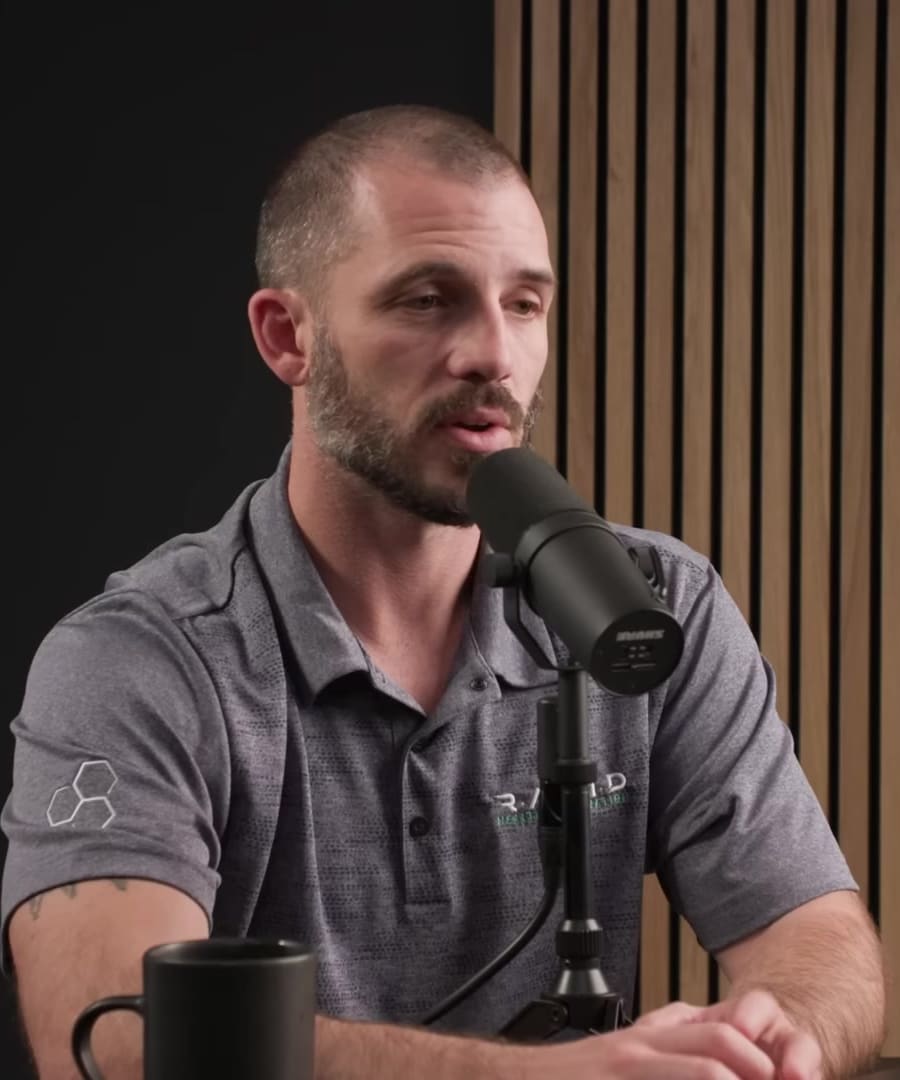Creatine
Sources:
Creatine is extensively discussed on the for its various benefits, ranging from enhancing physical health and performance to cognitive and neurological impacts. Here are some key points about creatine:
Benefits and Uses
- Physical Performance: highlights creatine monohydrate as a powerhouse for improving power output and muscle strength (1 2).
- Mental Health: There's exploration into creatine's cognitive benefits, particularly for mood regulation and motivation, suggesting it might assist in forms of mild depression (3).
- Neurological Health: Creatine has shown potential in enhancing brain function, particularly in the context of traumatic brain injury (TBI), by supporting the brain's energy production systems (4 5).
- Daily Dosing: Rather than "loading" creatine, a daily intake of about 5 grams is generally recommended, adjusting for body weight where necessary. It effectively raises creatine stores in the muscles and brain over time without the need for initial high dosages (6).
Mechanisms and Effects
- Creatine aids in muscular and neurological functions by storing high-energy phosphate groups in the form of phosphocreatine, which is released during stress or exercise to help sustain energy (2).
- It's also implicated in improving bone mineral density and posses potential, albeit still unclear, benefits against neurodegenerative diseases like Alzheimer's and Parkinson's (7).
Considerations
- Creatine supplementation can be particularly beneficial for those who do not consume meat, as it's a natural source of creatine. Vegetarians, for example, may see more pronounced benefits from supplementation due to lower baseline levels of creatine from their diet (3).
This breadth of discussion across the showcases creatine as a versatile supplement with benefits that extend beyond just athletic performance, impacting mental health and cognitive functions.
RELATED QUESTIONSNasal breathing cardio
Sources:
Nasal breathing during cardiovascular exercise has several profound benefits, as discussed by on the . Here are some key insights into the practice and its advantages:
Benefits of Nasal Breathing During Cardio
- Improved Sleep: Training to be a nose breather during exercise can extend to better nasal breathing during sleep, which significantly impacts sleep quality by reducing issues such as sleep apnea and snoring (1).
- Enhanced Cardiovascular Health: Nasal breathing during lower-intensity cardiovascular workouts can promote cardiovascular and cerebral vascular health. Success in maintaining nasal breathing during such activities can be an effective way to achieve these health benefits (2).
- Sinus Dilation: Regular nasal breathing during exercise assists in dilating the sinuses, which can lead to an easier breathing experience not only during physical activities but also in daily life (3).
- Aesthetic and Structural Improvements: Continuous nasal breathing has positive effects on facial aesthetics and structure by promoting a more natural and supported skeletal posture of the skull and face (4).
How to Practice
- Start by integrating nasal breathing into less intense activities. This can be challenging initially but tends to get easier with practice.
- Using techniques like mouth taping during sleep can enforce nasal breathing and provide benefits like reduced sleep apnea and improved oxygen delivery (1).
- Constant practice during routine activities and exercise helps in making nasal breathing a default respiratory method, which has all-round benefits including improved endurance and facilitation of better oxygen and carbon dioxide balance in the blood (3).
In summary, nasal breathing during cardiovascular exercises not only enhances physical performance but also contributes positively to overall health, sleep quality, and structural benefits. It's a trainable skill that improves through consistent practice, leading to numerous benefits over time.
RELATED QUESTIONSDefine nasal breathing
Sources:
Nasal breathing is defined by as the act of inhaling and exhaling through the nose rather than the mouth. This method of breathing introduces several key advantages:
- Increased Lung Capacity: Breathing through the nose increases resistance to airflow, which paradoxically allows for greater lung inflation compared to mouth breathing.
- Health Benefits: Nasal breathing warms and moisturizes the air entering the lungs, making it more favorable for lung health and reducing the likelihood of respiratory issues.
- Production of Nitric Oxide: The nasal passages produce nitric oxide, a gas that helps relax and dilate the blood vessels throughout the body, enhancing blood flow and vascular health.
- Prevention of Mouth Breathing Issues: Mouth breathing, particularly when it becomes a chronic pattern, can harm respiratory function, making nasal breathing the preferred default method for maintaining optimal respiratory health 1.
Creatine
- RELATED QUESTIONS
Nasal breathing cardio
- RELATED QUESTIONS
Define nasal breathing











